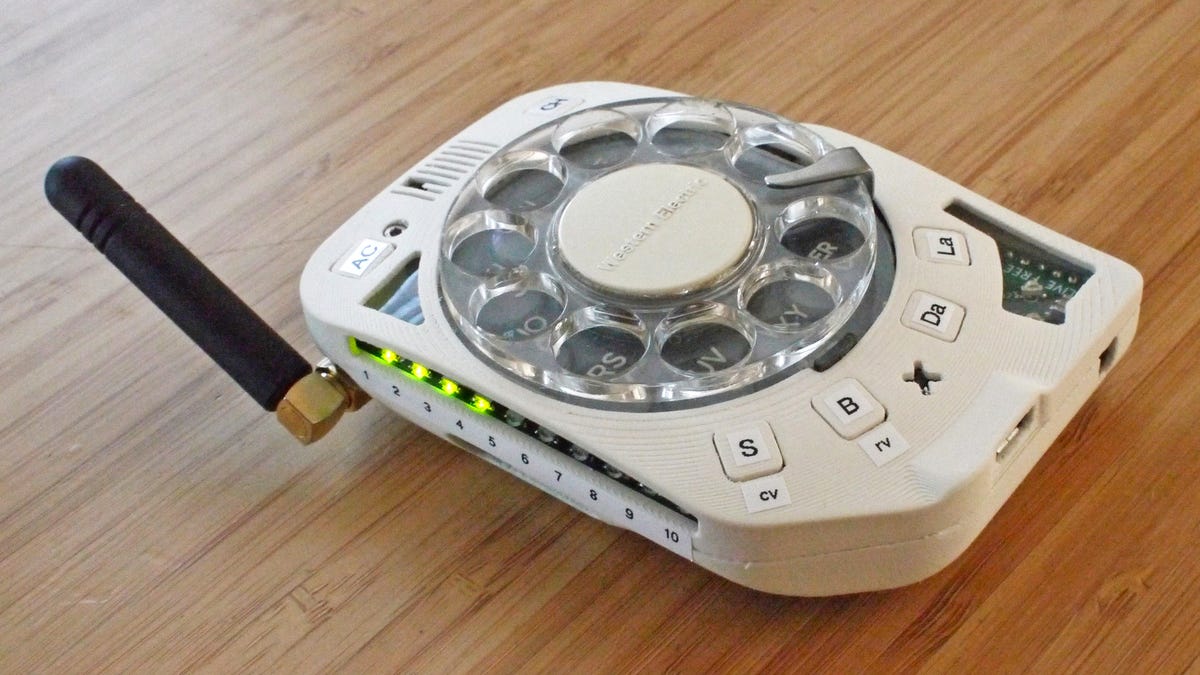Someone Built a Distraction-Free Cellphone With a Working Old-School Rotary Dial - 3 minutes read
 Photo : Justine Haupt
Photo : Justine HauptThe smartphone changed the world, but it wasn’t all for the better. Mobile devices are packed full of endless productivity-killing distractions, and the ability to actually make a phone call almost seems like an afterthought now. A frustrated Justine Haupt came up with an unorthodox solution: she designed and built a mobile phone with a rotary dial that looks like it’s 40 years old.
There’s an entire generation that probably won’t be able to make sense of Haupt’s Rotary Cellphone or why it has a bizarre circular wheel affixed to the top. For the rest of us who suffered through a time when placing calls meant spinning a plastic wheel, Haupt’s creation seems like it was brought to Earth from a parallel dimension where mobile phones took an entirely different evolutionary route, and where technologies like touchscreens never came to fruition.
Advertisement
For those scratching their heads over that dial, users would place a finger in the hole of the number they wanted to ‘press’ and then turn the dial until their finger hit a metal clip, at which point they’d release the dial and it would spin back into place. All of that for every single number of a seven-digit phone number. Photo : Justine Haupt
According to Haupt’s website where she provides lots of details on how this creation came to be, the dial itself was salvaged from a Western Electric Trimline telephone which featured hardware that was more compact than other rotary phones from decades back. That, along with the necessary electronics needed to make the dial interface with modern cellular chipsets, was integrated with a custom-designed board that was manufactured in China, and then stuffed into a 3D printed enclosure. The Rotary Cellphone is far from pocketable (unless you’re wearing an oversized novelty trenchcoat) but it’s compact and light enough to pick up and hold to your ear for the length of the average phone call.
A curved e-paper screen shows caller information and history, either on the back of the device or on the side like an old-school pager. Photo : Justine Haupt
Despite looking somewhat primitive, Haupt did integrate some useful features borrowed from modern smartphones, including a 10-LED signal meter, programmable shortcut buttons for calling specific people, a power switch that physically slides on and off, and a curved e-paper screen with two sections so that information like missed calls can be displayed on the side like an old-school pager would.
Advertisement
On her website Haupt has shared not only photos of how her Rotary Cellphone came together, but also raw schematics and links to all of the original design files, released as open-source materials, allowing anyone with the technical expertise to build their own.
Source: Gizmodo.com
Powered by NewsAPI.org